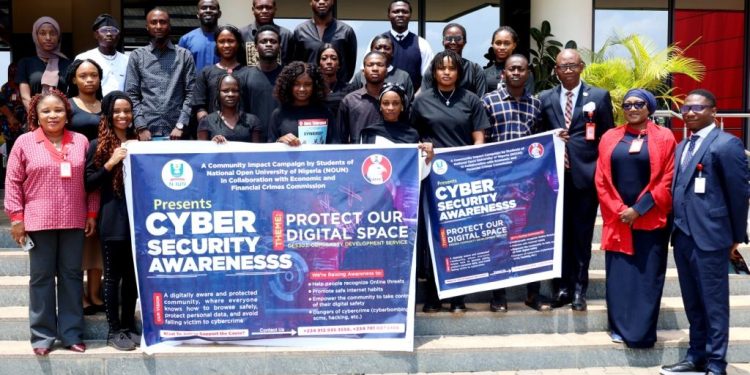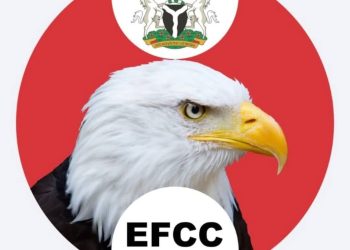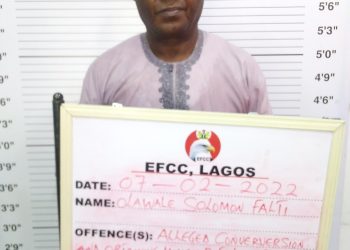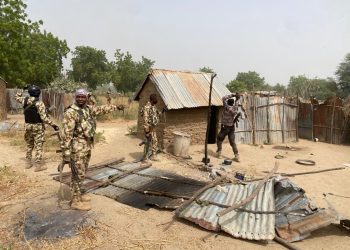By Nkechi Eze
The Executive Chairman of the Economic and Financial Crimes Commission (EFCC), Mr. Ola Olukoyede, has called on Nigerian youths to play a more active role in the fight against corruption, economic and financial crimes in the country. He made the call during a recent excursion and study tour of the EFCC headquarters in Abuja by students from the National Open University of Nigeria (NOUN), Abuja Study Centre.
In a statement signed by the Commission’s spokesperson, Dele Oyewale, the EFCC Chairman, who was represented by Deputy Commander of the EFCC, DCE Nwanyinma Okeanu, expressed deep concern over the extent to which corruption has permeated the fabric of Nigerian society. He cautioned the students against falling victim to the temptations of economic and financial crimes and urged them to serve as vanguards of integrity.
“I want you to take the bull by the horn and join the fight against corruption in Nigeria. As you go home, spread the message to your schoolmates, your parents and everyone you know, and together we can save our nation from being destroyed by corruption,” Olukoyede charged.
The students were also given detailed insights into the Commission’s operations and preventive strategies. Speaking to the group, the Head of Public Interface at the EFCC, Assistant Commander of the EFCC (ACE I) Tony Orilade, explained the structure, functions, and operational terms used within the Commission. He emphasized that awareness and vigilance were key tools in the prevention of fraud.
“At every stage of the society, we are there to sensitize the public on our preventive mandate so that you don’t fall victims. There are very serious crimes that a lot of you don’t know about, and it is our duty to tell you to desist from them so that you are not caught,” Orilade said. He warned the students to be wary of online interactions, stressing the importance of verifying identities before engagement. “Mind the friends you keep. On no account should you as an individual get involved with people whose identities you don’t know. Verify before you engage, because the picture on a person’s profile on the internet may be different from the real person.”
Also speaking at the event, ACE I Evelyn Achudume of the EFCC ICT Unit highlighted the critical role of Information Technology in both perpetrating and combating corruption. She revealed that cybercrime costs the global economy up to $8 trillion annually, driven by attacks such as ransomware, phishing, Distributed Denial-of-Service (DDoS), hacking, malware, and social engineering.
Achudume urged students to use digital tools responsibly, stressing that the internet offers immense opportunities for personal and economic development. “Use the social media space to your advantage. Equip yourselves with tools to navigate the space and make a living online. Stay up to date with emerging innovations in IT, many of which can help you prevent fraudulent practices targeted at you.”
In her remarks, ACE II Aisha Mohammed, Head of Enlightenment and Reorientation at the EFCC, emphasized that the Commission’s mandate goes beyond arresting and prosecuting offenders. She noted that public education and collaboration are central to its mission.
“EFCC does not arrest people alone, we go out to sensitize people too because our mandate is to prevent, investigate and prosecute. We explore all publicity mediums radio, TV, X (formerly Twitter), Instagram and even phone lines for people who want to reach out directly,” she said.
She explained that the EFCC runs a variety of outreach programmes for all segments of society, including youth-focused initiatives aimed at cultivating a culture of integrity from an early age. “We want to catch them young. So I need you to be our foot soldiers by telling your friends and family to make sure everyone is involved. The fight is not for one person, let’s do it together. Little by little, we can make a difference. You are the future of this country.”
The visiting students expressed their appreciation to the EFCC for hosting and mentoring them. They pledged to spread the Commission’s anti-corruption messages within their schools, homes, and communities.















